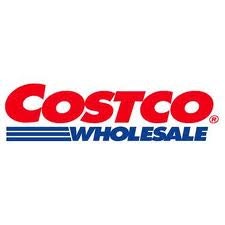
I believe wholesaler Costco Wholesale Corporation (NASDAQ:COST) could be such a stock.
I know this assertion may be hard to swallow, considering Costco’s dominance and overall financial strength. And I haven’t forgotten the stock’s 11.8% rate of return during the past 15 years. It’s just that things have changed and I think, going forward, shareholders will be lucky to get 4% or 5% a year out of the stock — if that.
Here are the four main reasons why…
1. Not much more expansion potential
Costco has a whopping 66.5 million members — which is impressive, but membership has reached a level where analysts believe it could hit a wall. This is a key concern because membership fees have a big effect on already thin operating margins, even though these fees account for a relatively small amount of revenue (about $2 billion of the $99.1 billion Costco currently generates each year). Indeed, the operating margin is only 2.8% with membership fees and it’s barely breaking even (0.6%) without them. But Costco clearly doesn’t think it can get away raising membership fees very often to help augment operating margins. On Oct. 6, it announced higher fees for the first time in more than five years, a 10% increase on about 22 million of its members.
2. Slower revenue growth, heavy competition
If the pace of new membership slows, then it stands to reason revenue growth could drop, too — and that’s just what analysts predict. After climbing at a 9% rate the past five years, from $64.4 billion in 2007, revenue is forecasted to rise perhaps 6% annually and reach $132.6 billion in 2017. That’s almost $22 billion less than would be projected ($154.5 billion) if Costco kept up a 9% pace.
But even the 6% estimate could prove optimistic in the face of blistering competition from a crowded field that also includes Target Corporation (NYSE:TGT), Wal-Mart Stores, Inc. (NYSE:WMT) and dollar stores like Dollar General Corp. (NYSE:DG). These three competitors alone generate combined annual revenue of $547.6 billion, almost six times that of Costco, and they’re each capable of increasing revenue by around 9% a year. Privately-owned rival BJ’s Wholesale Club has also been making wavesthrough steady expansion, increasing the number of its locations from 172 five years ago to 197 now. Revenue for BJ’s is currently around $12 billion a year.
3. A mediocre outlook for the stock
Assuming revenue forecasts are on target, Costco may post a similar rate of increase in earnings per share, from $3.85 this year to $5 in 2017. That’s not too bad. But it only implies the potential for a 24% gain in the stock price to $120 a share from $97 now, assuming the price-to-earnings (P/E) ratio stays in the historical range of 24 (24 x $5 = $120). A 24% gain isn’t the worse thing ever, but it’s certainly nothing to get excited about considering it translates to a mediocre 4.4% rate of return in the coming five years. I’d expect much better performance from plenty of other stocks, even in this economy.
4. A paltry dividend yield
At $1.10 a share, Costco’s dividend is only good for a meager 1.2% yield. For a company with $4.9 billion in cash and annual free cash flow ranging from $1.6 billion to $1.9 billion during the past three years, I’d think Costco could treat shareholders a lot better in the dividend department.
Risks to Consider: Because Costco is likely to find it difficult to keep increasing membership and the economy just can’t seem to get in gear, financial results and stock performance could fall significantly short of what I’ve described here.
Action to Take –> I’m certainly not predicting Costco’s demise. But I strongly suspect the next 15 years won’t be nearly as good to shareholders as the past 15 years. As I said earlier, plenty of other stocks have far better total return potential than Costco, in my opinion — the small-cap food retailer Ingles Markets, Incorporated (NASDAQ:IMKTA), alcoholic beverages giant Diageo plc (NYSE:DEO) and the large-cap metal packaging manufacturer Crown Holdings, Inc. (NYSE:CCK) to name just a few.
This article was originally written by Tim Begany, and posted on StreetAuthority.





